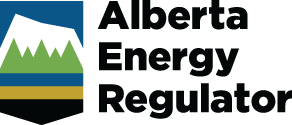New requirements for financial assessment will help with liability management
Who's on clean up duty?
Whether you're talking about the aftermath from a dinner party, or the far more serious nature of oil and gas development, someone has to take responsibility for the clean up. The best way to ensure the job gets done is to make sure everyone is capable of doing it right from the start and ensure they have the capacity to not only develop, but operate and clean up the site. In a newly revised Directive 067: Eligibility Requirements for Acquiring and Holding Energy Licences and Approvals, the Alberta Energy Regulator (AER) is increasing its scrutiny of companies who want to operate.
"Developing oil and gas resources in Alberta is a privilege, not a right. We are looking at the way we make decisions and increasing scrutiny to ensure that this privilege is only granted to responsible companies," says Trevor Gosselin, a director in regulatory applications.
The new directive focuses on the overall financial health of companies. This includes requiring that financial information is provided upfront, annually, and whenever the AER deems it necessary to ensure the company is able to continue to meet its regulatory obligations throughout the energy development lifecycle. Particularly as it relates to end-of-life closure activities.
Another important indicator of a company's financial health involves its debt and outstanding payments. As a result of feedback received from stakeholders, including municipal governments, the AER may now consider unpaid municipal taxes and surface lease payments as part of its assessment when determining if a company is eligible to hold a licence.
“We want companies to be successful, and we want Alberta’s resources to be developed safely and in an environmentally-responsible way. These are not mutually exclusive.”
- Trevor Gosselin, director, regulatory applications.
Before releasing Directive 067, AER's chief executive officer spoke with several organizations representing various municipality groups to discuss the changes. One such conversation was with the Rural Municipalities Association (RMA).
"Having the AER consider municipal taxes as one of a suite of indicators of the fiscal health of an operator is very much appreciated, and has been a significant role of advocacy on behalf of rural municipal leadership for the operation of oil and gas in Alberta," says Paul McLauchlin, president of the RMA. "With the AER reaching out to discuss what matters to rural Albertan leaders and echoing those concerns within the changes in Directive 067 goes a far way to continue to promote the environmental, social and governance standards that always has existed in Alberta."
Over the next year, the AER will continue to make changes to requirements, processes, and systems to implement the Government of Alberta's Liability Management Framework. More information is available on the AER's liability management webpage.
"We want companies to be successful, and we want Alberta's resources to be developed safely and in an environmentally-responsible way. These are not mutually exclusive," adds Gosselin.


